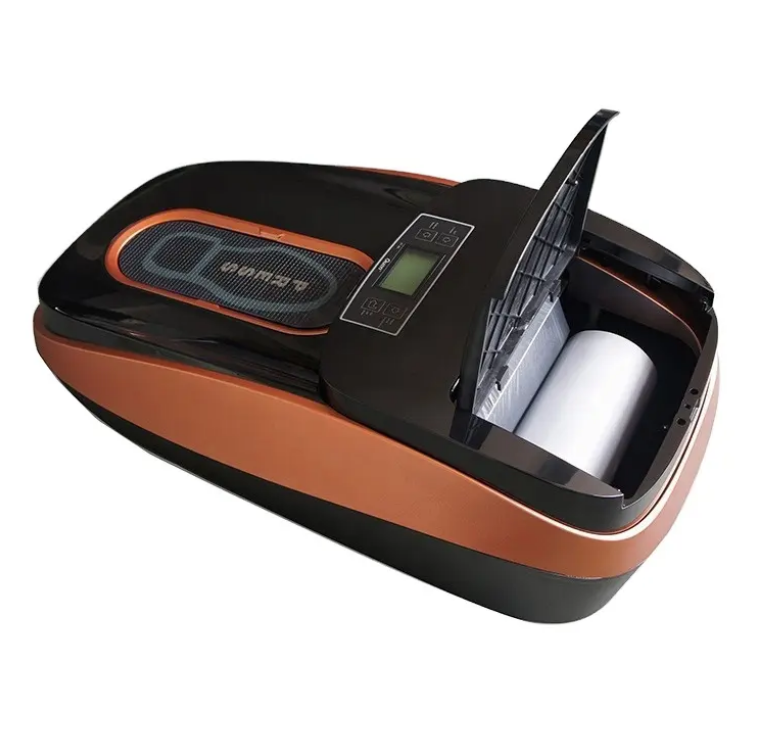Fertilizer production is a critical aspect of modern agriculture, driving the efficiency and sustainability of crop growth. Among the various technologies and machinery employed in this industry, the steel belt fertilizer granulator stands out as a pivotal component. This advanced equipment plays a crucial role in the granulation process, transforming raw materials into high-quality fertilizer granules. In this article, Little Sky explores the importance of the steel belt fertilizer granulator on the fertilizer production process.
Understanding the Granulation Process
Granulation is the process of agglomerating fine powders or particles into larger, uniform granules. This process enhances the material's physical properties, making it easier to handle, transport, and apply. In the context of fertilizers, granulation helps in the controlled release of nutrients, improving their effectiveness and reducing waste.
There are various methods of granulation, including wet granulation, dry granulation, and thermal granulation. Each method has its specific applications and benefits, but thermal granulation, which involves the use of heat to fuse particles together, is particularly effective in fertilizer production. This is where the steel belt fertilizer granulator comes into play.
What is a Steel Belt Fertilizer Granulator?

A steel belt fertilizer granulator is an advanced industrial machine designed to produce spherical or cylindrical granules from raw materials. It utilizes a continuous stainless steel belt as the substrate onto which molten or semi-molten materials are deposited, cooled, and solidified. This process ensures consistent granule size, shape, and density, which are critical for the efficacy and efficiency of fertilizers.
Key components of a steel belt fertilizer granulator include:
Steel Belt: A continuous, moving belt made of durable stainless steel that can withstand high temperatures and mechanical stress.
Feeder: A system to evenly distribute the raw material onto the steel belt.
Heating Mechanism: Heats the raw materials to a molten or semi-molten state, ensuring they can be shaped into granules.
Cooling System: Employs air or water to cool the granules as they move along the belt, solidifying them into the desired shape and hardness.
Discharge System: Collects the finished granules at the end of the belt for further processing.
The granulation process in a steel belt granulator involves depositing the molten material onto the moving steel belt. As the material cools and solidifies, it forms granules that are then discharged for additional processing.
Optimizing Production with Steel Belt Fertilizer Granulator
In the realm of agricultural technology, the steel belt fertilizer granulator has emerged as a pivotal tool for optimizing fertilizer production processes. This advanced equipment plays a crucial role in transforming raw materials into high-quality fertilizer granules, offering numerous advantages that enhance efficiency, quality, and sustainability in agriculture.
Enhanced Efficiency and Quality
Steel belt fertilizer granulators operate on a continuous process principle, ensuring uniform distribution of raw materials onto a durable stainless steel belt. This method facilitates precise control over the granulation process, from initial particle fusion through controlled heating to final solidification during cooling. The result is granules of consistent size, shape, and nutrient composition, which are critical for achieving optimal nutrient release patterns in soil. By reducing variations in granule characteristics, steel belt granulators improve fertilizer effectiveness and minimize nutrient wastage, thereby enhancing overall agricultural productivity.
Environmental Sustainability
The adoption of steel belt granulation technology represents a significant step toward environmental sustainability in agriculture. Granulated fertilizers produced by these granulators offer several environmental benefits compared to traditional fertilizers. Firstly, their controlled release properties ensure nutrients are delivered to crops gradually, matching plant uptake requirements and reducing the risk of nutrient leaching into groundwater. Secondly, the uniformity of granules enhances application efficiency, allowing farmers to apply fertilizers more accurately and sparingly. This precision not only conserves resources but also mitigates the environmental impact of excess nutrients on surrounding ecosystems, promoting sustainable farming practices.
Versatility and Customization
One of the hallmark features of steel belt fertilizer granulators is their versatility in processing a wide range of raw materials. Whether handling conventional chemical fertilizers or organic waste materials, these granulators can effectively convert diverse inputs into uniform granules suitable for various agricultural applications. This flexibility enables fertilizer manufacturers to tailor formulations according to specific crop needs, soil conditions, and regional farming practices. By offering customized fertilizer solutions, steel belt granulators support precision agriculture initiatives aimed at maximizing crop yields while minimizing environmental impact. Such customization not only enhances nutrient management but also promotes efficient resource utilization across diverse farming landscapes.
The steel belt fertilizer granulator is a cornerstone of modern fertilizer production, offering numerous benefits that enhance the quality, efficiency, and sustainability of fertilizers. Its ability to produce uniform, high-quality granules with controlled nutrient-release properties makes it an invaluable asset in the agricultural industry.
As technology continues to evolve, the role of steel belt fertilizer granulators will become even more significant. Innovations in smart technology, eco-friendly materials, and customization will drive the future of fertilizer production, supporting sustainable and efficient farming practices. By embracing these advancements, fertilizer producers can meet the growing global demand for high-quality fertilizers, contributing to the success and sustainability of agriculture worldwide.
https://www.th-littlesky.com/Compound-Fertilizer-Granulator-Supply.html
www.th-littlesky.com
Little Sky Mechanical Engineering Thailand Co.,Ltd


More Stories
How Automatic Shoe Cover Dispensers Are Revolutionizing Cleanliness in High-Traffic Areas
Why Automatic Shoe Cover Dispensers Are Becoming Essential in Modern Facilities
How Self-Priming Sewage Pumps Improve Wastewater Handling Efficiency